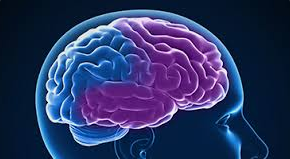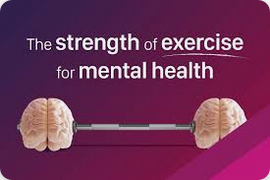Aerobic exercises are particularly beneficial, but all types of exercise can contribute to a stronger, more resilient brain, delaying cognitive decline and reducing the risk of conditions like dementia and depression.

Exercise significantly boosts brain health
How Exercise Affects the Brain
-
Increased Blood Flow and Growth Factors:
Physical activity enhances blood circulation to the brain, delivering more oxygen and nutrients. It also stimulates the release of growth factors that promote the survival and growth of new brain cells.
-
Neurogenesis:
Exercise promotes neurogenesis, the creation of new neurons, particularly in the hippocampus, a brain area crucial for memory and learning.
-
Brain Structure & Function:
Regular exercise can increase the volume of the hippocampus and prefrontal cortex, areas that tend to shrink with age and are susceptible to neurodegenerative diseases.
-
Neurotransmitters:
Exercise boosts mood-enhancing neurotransmitters like serotonin and dopamine, which can reduce symptoms of depression and anxiety and improve overall emotional balance.
-
Neuroplasticity:
Exercise supports neuroplasticity, the brain’s ability to form new neural connections, which is vital for lifelong learning and cognitive flexibility.
-
Improved Memory and Cognition:
By increasing brain volume in key areas and promoting new neural connections, exercise enhances your ability to learn and remember information.
-
Enhanced Focus and Attention:
Exercise can improve focus and concentration, with even a single workout providing immediate benefits that can last for several hours.
-
Better Mental Health:
Regular physical activity is a powerful way to improve mood, reduce anxiety, and combat symptoms of depression.
-
Reduced Risk of Cognitive Decline:
A regular exercise routine can help protect the brain from the effects of aging and lower the risk of developing neurodegenerative diseases like dementia and Alzheimer’s.
Types of Exercise for Brain Health
-
Aerobic Exercise:
Activities like running, swimming, biking, and dancing, which get your heart rate up, are particularly effective for brain health.
-
Resistance Training:
Strength training can also benefit the brain, though the precise mechanisms are still being explored.
-
Other Activities:
Even low-intensity exercises like yoga and certain video games (exergaming) have been shown to enhance cognition.
How Much Exercise is Needed?
-
Start with what you enjoy:
Finding an activity you like can make it easier to stick with a regular routine.
-
Consistency is key:The benefits of exercise accumulate over time, with regular, moderate-intensity exercise showing significant improvements in brain volume and function
Working to create change

Mr. Nick Pratap, BSc, Kin, Clinical Exercise Physiologist, Home Exercise Program – Row

Mr. Nick Pratap, BSc, Kin, Clinical Exercise Physiologist, Home Exercise Program – Walking
Mr. Nick Pratap, BSc, Kin, Clinical Exercise Physiologist, Home Exercise Program – Bird Dog;




